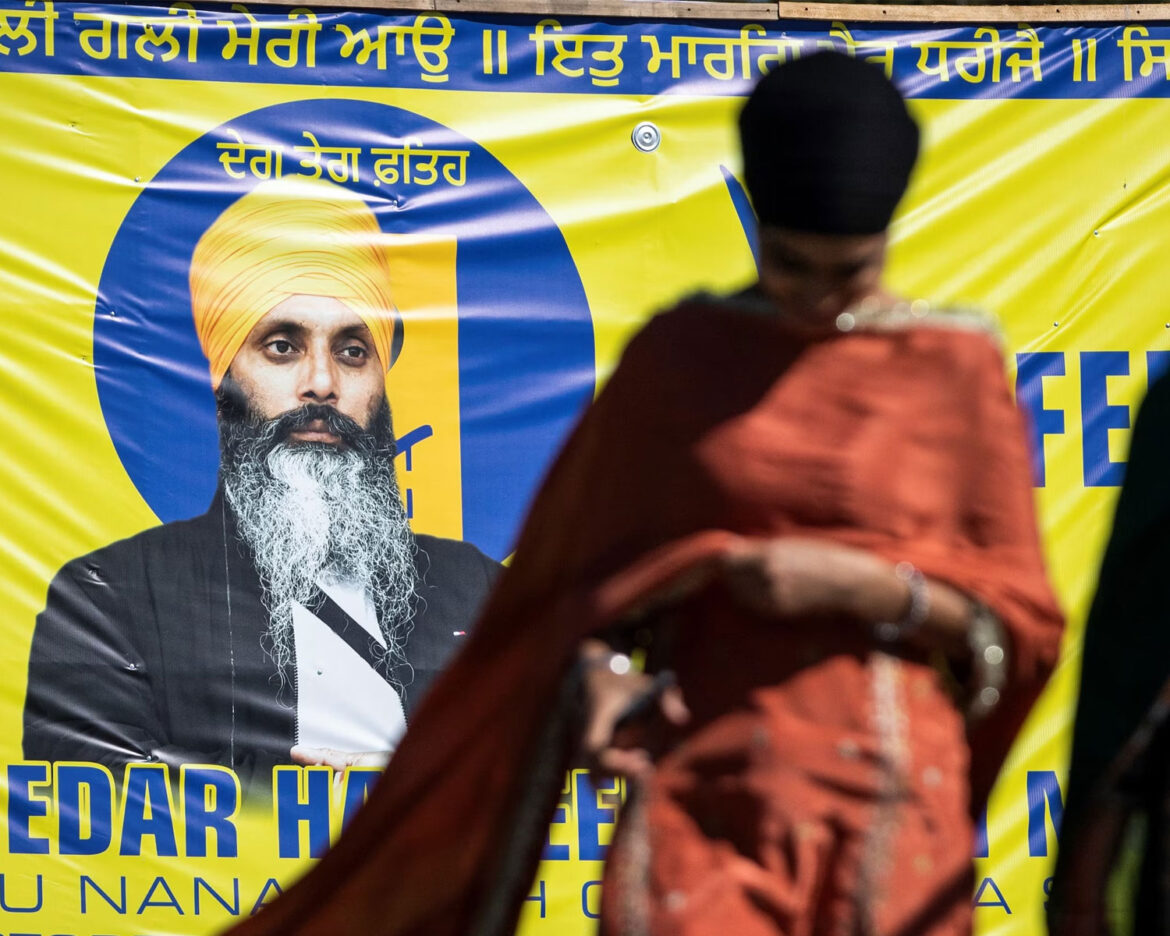In Canada, there is a big problem between Canada and India. Canada says that India is connected to the murder of a Sikh leader in Canada. This has caused a lot of tension between the two countries. Let’s find out more about the man at the center of this issue, Hardeep Singh Nijjar.
Hardeep Singh Nijjar was born in a place called Jalandhar in the state of Punjab in India. In 1997, when he was a young man, he moved to Canada. There, he got married, had two sons, and worked as a plumber.
He lived in British Columbia, which is a part of Canada, and he became known for supporting the idea of Khalistan. Khalistan is a separate place that some Sikhs want to create because they are a small religious group in India. Sikhs make up only 2% of India’s population.
India accused him of being a terrorist and said he was the leader of a banned militant group called the Khalistan Tiger Force (KTF).
But in June this year, when he was 45 years old, two people wearing masks shot and killed him outside a Sikh temple in Vancouver, which is a city in Canada. Some people close to him say that Canadian intelligence services warned him about threats to his life before he was killed.
India strongly denies any involvement in his murder and calls the accusations by Canada’s leader, Mr. Trudeau, “absurd.”
For his supporters, Hardeep Singh Nijjar was a peaceful advocate for Sikh independence in British Columbia, and he cared a lot about his community. There is a big memorial set up for him outside the Sikh temple where he used to be the president, and hundreds of people attended his funeral.
But in India, he was wanted for several crimes, including a bombing in 2007 that killed six people and hurt 40 others, and the assassination of a Sikh Indian politician in 2009.
In 2020, the Indian government said he was actively involved in training and financing members of the Khalistan Tiger Force. He was also accused of running training camps for people who wanted to attack India.
In July 2022, India’s National Investigation Agency offered a reward of $1.2 million for information about Mr. Nijjar.
Reports about his alleged terrorist activities started in India in 2016, and later, these reports also came to Canada. Back then, India told Canadian authorities about their concerns regarding Mr. Nijjar.
The Canadian police knew about these allegations, but they never charged him with a crime in Canada.
In 2016, Mr. Nijjar himself wrote a letter to the Canadian Prime Minister, Justin Trudeau, in which he said he was a Sikh nationalist who believed in the rights of Sikhs to decide their future in a referendum. He also said he was never involved in any violence.
Before he died, he was planning a referendum for Sikhs in British Columbia about creating an independent state in India. This was part of a global campaign by a group called Sikhs for Justice, which is banned in India.
The demand for Khalistan caused a lot of tension between Canada and India, which is now at its worst.
India has always opposed the Khalistan movement. All the major political parties in Punjab, a state in India, have said they don’t support violence and separatism.
In the 1980s, the demand for Khalistan was at its highest, and there was a violent movement for it. Thousands of people were killed during that time.
Indian soldiers even entered the Golden Temple, the holiest place for Sikhs, to remove armed separatists hiding there. This operation, ordered by the Prime Minister at the time, led to many deaths and damage to the temple.
A few months later, the Prime Minister was killed by two of her Sikh bodyguards who were unhappy with her orders. This led to riots in which thousands of Sikhs were killed in Delhi.
But today, the Khalistan movement is not as strong in Punjab, and many groups oppose it.
The roots of this issue in Canada and Britain can be traced back to the 1980s when people in the diaspora reacted to what was happening in India.
In 1985, a bomb exploded on an Air India flight from Toronto to London, and all 329 people on board were killed. After a long investigation, two Sikh separatists in British Columbia were found not guilty of murder and conspiracy in 2005. Another man was found guilty of manslaughter for helping make the bomb.
India’s Prime Minister, Narendra Modi, has repeatedly said that Canada is not doing enough to stop Sikh protests and activities against India.
Some people in Canada who support Khalistan say they are peaceful and that India is spreading false information and harassing them.
But other Sikhs in Canada distance themselves from the separatist movement and say it doesn’t represent the views of most Sikhs in the country.
One Sikh Canadian, Ujjal Dosanjh, who used to be a Premier of British Columbia, called Mr. Nijjar a “small fry” and not a big figure in the Khalistan movement.
A journalist in British Columbia, Gurpreet Singh, who interviewed Mr. Nijjar before, is skeptical about India’s claims against him. He remembers Mr. Nijjar as a calm person who was active in the community. He said that while you may disagree with him about Khalistan, he had the right to ask for it.



